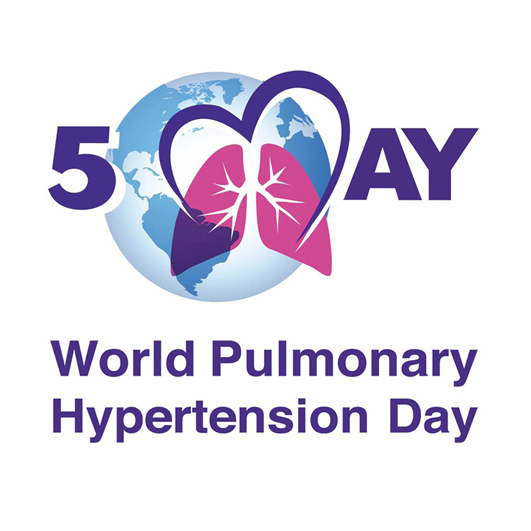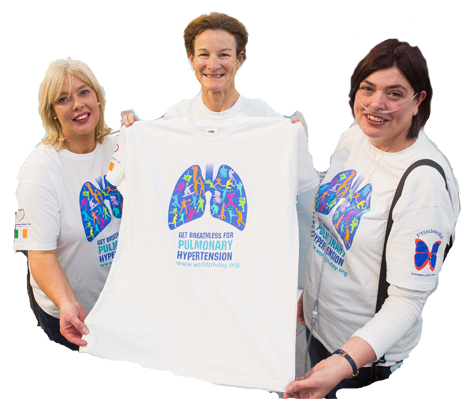Pulmonary Hypertension Unit

World Pulmonary Hypertension Day 2017
In order to mark World PH Day 2017 the Pulmonary Hypertension Association Ireland issued the following press release:
Pulmonary Hypertension – A devastating disease
Most of us take breathing for granted. Persons living with Pulmonary Hypertension (PH) do not. PH is caused by many different conditions but can occasionally occur for no known reason with no obvious cause.
PH is much more common in young adults and is approximately twice as common in women as in men.
With PH the arteries that carry blood from the heart to the lungs become narrowed, making it difficult for blood to flow through the vessels. Symptoms of pulmonary hypertension do not usually occur until the condition has progressed. A key symptom of PH is breathlessness – even when carrying out simple everyday tasks like walking short distances or climbing the stairs. PH has a very severe impact on the quality of life for patients and affects their capacity to work, to carry out household chores, to have a normal family and social life, it can affect interpersonal relationships and lead to depression.
Because the condition is so rare, patients and their carers often feel isolated, lonely and frightened, We are constantly trying to raise awareness of the condition – not only among members of the public but also among doctors too. Unfortunately the condition is often misdiagnosed and mistaken for less serious conditions such as asthma. If a patient is not diagnosed within 2.5 years –they will die. The Mater University Hospital is the only centre of excellence in Ireland.
World PH Day is marked annually on 5th May – local activities take place around this time in every country throughout the world. PH Ireland is delighted to note that members of the Irish Navy (Potential NCOs Class) have agreed to support us by wearing our T-shirts while participating in the Cork half-marathon on 4th June. We are extremely grateful and honoured by this commitment. To receive recognition from such a prestigious force is a great asset to us as we strive for awareness of Pulmonary Hypertension.



